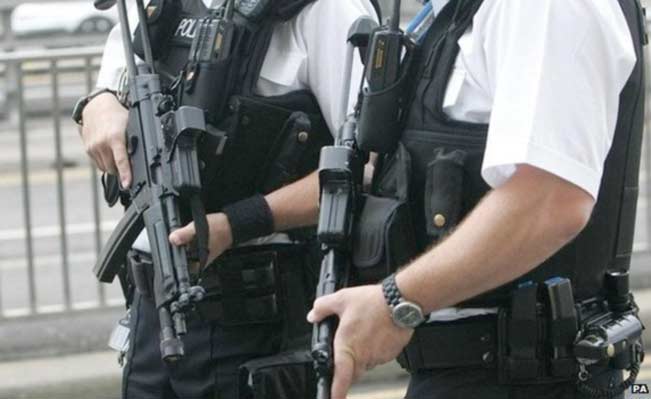
The government’s new ‘counter extremism’ strategy is an attack on the very democratic values it claims to defend argues Tower Hamlets Deputy Mayor Oliur Rahman
The government’s new ‘counter extremism’ strategy report leaked to the Sunday Telegraph over the weekend is not an attack on extremism, but on the very democratic values it claims to defend. Its robust ‘get tough’ message is pitched more at collecting votes for May than countering terror, and risks more than it solves.
Fighting terrorism is something no humane person could disagree with it. But the vague definition of ‘extremism’ is deeply worrying. The smear of ‘extremist links’ in recent years have been used not against terrorist supporters, but against everyone from Labour and Lib Dem MPs to Tory ministers to a spectrum of faith, charitable, welfare and campaigning organisations.
Somewhat sinister is the sentence that the strategy will aim to ‘explain’ British foreign policy. The term ‘explanation’ in practice means ‘defence.’ One million people, from the famous to the ordinary, came out to protest the Iraq War in 2003. Are all these people at risk of radicalisation? How much of ‘British foreign policy’ will civil servants be ‘explaining’ to people – every trade deal or agreement made with any country, or just the parts involving the Middle East?
It is doubtful that the cooperation of Britain with the Saudi regime, or British forces training Bahrain’s troops to shoot at pro-democracy protesters, will be ‘explained.’
The report claims current policy is sending a message that people don’t have to believe in democracy. Leaving aside that parliament supports disenfranchising prisoners and that two-thirds of the British people support our unelected head of state, who gets to define what democratic values are? There are plenty on the left who would say that our democracy isn’t working because the political class are in the pockets of big business and finance, and of course plenty on the right who would say that EU influence or high taxes are not democratic. Is a belief in democracy contingent in agreeing with government policy?
The report apparently promises crackdowns on ‘violence against women, such as female genital mutilation and honour killings.’ Such vile behaviour is rightly already illegal and there are fantastic schemes on both the police and charitable side to stop it – we had a conference on FGM in my own Tower Hamlets not long ago. So what exactly will such a crackdown consist of? Or is the report simply pointing out behaviour we all revile in order to justify ever more authoritarian measures?
I have always argued that the politics of hate should be robustly fought and in places silenced due to the dangers of what it leads to – Islamophobic attacks in London are up 65% while anti-Semitic incidents have doubled. But the silence on this report and authoritarian measures like the Counterterrorism and Security Bill from those who defended ‘free speech’ when the EDL brought its hatred to our streets is absolutely deafening.
The point of this strategy is to go further than dealing with neo-Nazis, al-Qaeda supporters or the anarchists who blow up signal boxes in Bristol. It is about dealing with ‘softer’ behaviour that provides ‘succour’ to extremism. But what does a ‘soft extremist’ looks like? We risk adopting a definition that puts any dissenter at risk, or alternatively thinking it is ‘just obvious’ what an extremist looks like – and deal only with extremism that has a Muslim face.
Many of those who have fallen prey to Isis were brainwashed and groomed through the internet, and many came from less obviously ‘Muslim’ areas such as Kensington and High Wycombe. We need policing less than we need positive work in our communities to strengthen the ties that bind us. But the government are talking tough while cutting funding to community groups and risking their ability to deliver, while their plan to scrap benefits for those not learning English is a callous joke as ESOL classes are slashed.
After the Charlie Hebdo attacks, faith leaders came together in Tower Hamlets Town Hall to condemn what had happened and pledge to work in their communities to promote understanding. Similar happened when far-Right ‘Christian Patrols’ turned up in Brick Lane. Our new booklet on preventing radicalisation and extremism among children is being delivered to schools and places of worship. A well-supported civil society works together on improving cohesion, and four fifths of local people think the borough is a place where those from different backgrounds get on well together.
But that’s the sort of ‘partisan community politics’ which Whitehall bureaucrats identified as needing to be stamped out. Perhaps such high handed, out of touch attitudes are the real problem with our counter-extremism strategy.
Cllr Oliur Rahman
Deputy Mayor of Tower Hamlets

